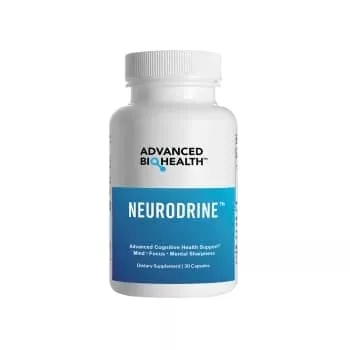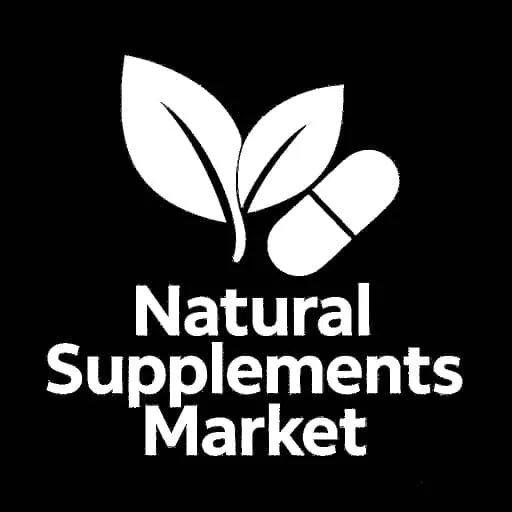If you’re shopping for a brain-health supplement aimed at improving memory, focus and day-to-day clarity, you’ve probably come across Neurodrine. Marketed as a natural, nootropic-style formula that supports healthy brain and memory function, Neurodrine combines several plant-based ingredients that have shown promise in research. In this in-depth review I’ll break down what’s inside, who it may help, what to watch out for and whether the current pricing and guarantees make it worth trying. My goal: give you the information a savvy buyer needs to decide whether Neurodrine belongs in your daily stack.
Table of Contents
Quick snapshot — what Neurodrine promises
Neurodrine positions itself as a single-pill solution to support memory, focus and cognitive resilience. According to the product pages, the formula blends botanical extracts such as Bacopa monnieri, Huperzine A, St. John’s Wort and Ginkgo biloba to support brain function and neural pathways. The brand offers multi-bottle discounts and a long money-back policy for buyers.
What’s in the pill? Ingredient breakdown and what the science says
Bacopa monnieri — a classic cognitive herb
Bacopa is commonly used in traditional systems of medicine and has a body of clinical research suggesting it can support memory and learning processes over consistent use. Many supplements include Bacopa specifically for memory stabilization and mental clarity.
Huperzine A — the potent cholinergic component
Huperzine A is an extract that’s been studied for its acetylcholinesterase-inhibiting properties — in plain terms, it can help increase levels of certain neurotransmitters involved in memory and attention. Huperzine A has been the subject of clinical research and while more large-scale trials are desirable, existing studies show it can be effective and is widely used in cognitive-support formulas.
St. John’s Wort — mood and stress support (with caveats)
St. John’s Wort appears in Neurodrine’s formula as an herb that may help buffer oxidative or everyday stress on the brain and mood. It’s important to note this herb is well-documented for drug interactions (see safety section below).
Ginkgo biloba — circulation and memory pathways
Ginkgo is one of the most common herbs in memory products; it’s thought to promote cerebral circulation and enhance neural signaling related to both working and long-term memory.
Overall: Neurodrine’s ingredient list reads like a compact “brain support” stack — the components are familiar and used in many researched nootropic blends. The combination is plausible for supporting cognitive function when used responsibly and with realistic expectations.
Pricing, deals and the guarantee — is it a sensible buy?
Neurodrine is sold primarily through direct-sale pages and product sites. Pricing tiers you’ll commonly see are:
- Single bottle: higher per-bottle price.
- 3-bottle pack: mid-tier savings.
- 6-bottle pack: deepest per-bottle discount, commonly advertised around $49 per bottle with free shipping (promotional pricing varies). The brand also promotes an extended refund window for dissatisfied customers.
If you’re the kind of buyer who tries new supplements for at least a month or two to evaluate effect, the multi-bottle offer frequently makes the per-month cost much more reasonable. The presence of a long refund policy (often highlighted on official pages) is a helpful sign for shoppers who want peace of mind.
Real-world feedback — what users are saying
Across third-party review sites and marketplace listings, user reports range from mildly positive to enthusiastic: many customers describe improved focus during work or study sessions, better clarity when juggling tasks and a reduction in “brain fog” days. As with most supplements, individual experiences vary and depend on lifestyle, baseline health and concurrent medications.

Safety, warnings and who should be cautious
Two important safety notes to keep in mind:
- St. John’s Wort has well-known drug interactions. It can reduce the effectiveness of many medications (including some antidepressants, birth control pills and others) and may cause serious interactions if combined with certain prescription drugs. If you’re taking medication, especially blood thinners, antidepressants or birth control, consult a healthcare professional before starting any supplement containing St. John’s Wort.
- Huperzine A is active and biologically potent. While research suggests it can be safe and helpful in certain contexts, Huperzine A exerts measurable effects on neurotransmitter systems; people with neurological conditions or those taking cholinergic or anticholinergic drugs should consult a clinician first.
Other common caveats: herbal supplements are not regulated like prescription medicines, so third-party testing and clear labeling are valuable. If you are pregnant, breastfeeding, have chronic conditions or are on multiple medications, get medical input before use.
Who is Neurodrine best for?
Neurodrine may appeal to:
- Busy professionals and students who want non-stimulant support for focus and short-term memory.
- Older adults looking for a plant-based supplement to complement healthy habits.
- Anyone who prefers ingredient transparency and wants a single, combined formula rather than several individual pills.
It’s less suited to:
- People on medications that interact with St. John’s Wort.
- Those expecting immediate, dramatic results from a single dose — most herbal cognitive ingredients perform best after consistent use over weeks.
How to evaluate results (realistic expectations)
When testing a cognitive supplement, consider measuring:
- Baseline memory and attention (notes, task completion time, forgetfulness frequency).
- Changes after 2–4 weeks and again at 6–8 weeks — many botanical ingredients need time to accumulate.
- Any side effects (sleep changes, GI upset, skin sensitivity) and interactions with other treatments.
Pairing a supplement with sleep, hydration, movement and focused work habits will always yield more consistent cognitive benefits than a pill alone.
Final verdict — should you buy Neurodrine?
Short answer: Neurodrine is worth considering if you want a thoughtfully composed, botanical cognitive supplement and you do not take medications that interact with its ingredients. The formula contains recognized herbs (Bacopa, Ginkgo, Huperzine A, St. John’s Wort) that have research backing and a plausible mechanism for supporting memory and focus. The value proposition improves with multi-bottle pricing and the brand-level guarantees that many listings highlight.
Safety pointer: If you take prescription medications — especially antidepressants, immunosuppressants or blood thinners — talk with your clinician before starting Neurodrine because St. John’s Wort and other herbs can interact with commonly prescribed drugs. The official founding research on Huperzine A and clinical resources on St. John’s Wort make this precaution clear.
Bottom line and buying consideration
Neurodrine offers a concentrated, research-minded blend of ingredients many consumers look for in a memory supplement. If you value botanical ingredients with a history in cognitive research, multi-bottle pricing and a long refund window, Neurodrine checks many boxes — provided you take the usual safety steps (medications check, realistic expectations, consistent testing). For motivated buyers who want to try a single, ready-made nootropic stack, the company’s current promotions make a trial less of an investment than typical monthly supplement costs.
Want to try it?
If you decide to test Neurodrine, evaluate your results across several weeks, track changes and keep an eye on any side effects. And if you’re on medication or have underlying conditions, consult your healthcare professional first — safety always comes first.


[…] Broom — often used to support healthy circulation and vein […]